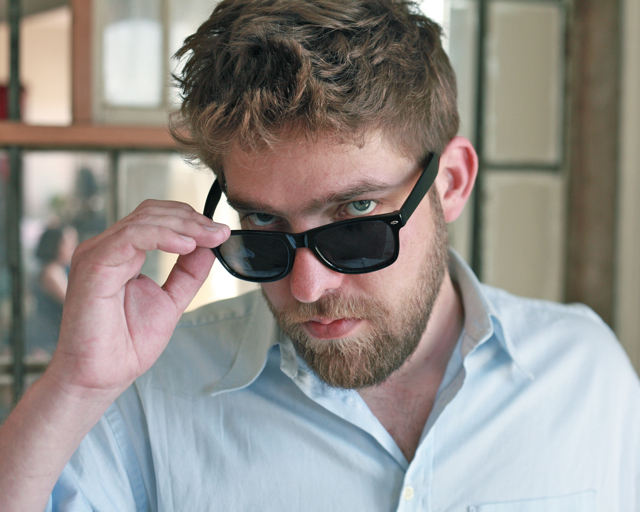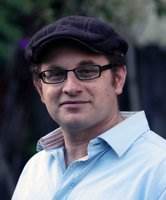Barbara Jwanouskos brings us an inside look at this year’s Olympians Festival.
This week, since the San Francisco Olympians Festival Indiegogo is at 8 days left, I thought I’d focus on one of the writers in this year’s festival, Harvest of Mysteries. The festival brings together a myriad of different people to create new work – this year, it’s inspired by the Greek and Egyptian gods of the dead. One of the best parts of the festival, from my perspective, is that you don’t need to have an extensive background or know someone in order for your proposal(s) to be seriously considered. All you need is a great idea. From there, the festival builds in small but manageable check-ins with writers, where you share what you’ve been working on and get feedback and encouragement from other writers in the room.
Operating on a very small budget yet still managing to acknowledge that everyone should be paid SOMETHING for their artistic work, this festival builds in a raffle whose proceeds are shared by the poster artists on the night of readings. By doing this, they give artists exposure and recognize that hard work goes into creating art.
As a writer for the festival this year, I’ve had the opportunity to hear short bursts of what Christine Keating is working on and I’m always excited to hear what she’s developed next. So, I thought I’d chat with her a bit more about her creative process and what she’s been up to.
Barbara: What attracted you to theater? How did you get your start?
Christine: I’ve always been attracted to theatre because I am fascinated by the idea that a group of people can all be made to feel a feeling because of how words are put together by someone else.
I started by writing my own plays when I was about 7 years old, and they were all re-enactments of various horrible tortures people put other people through throughout history. I performed them for my horrified but supportive parents in my living room with my best friends. I acted in high school at the all-boys school in my town because I figured it was a great way to meet boys, and then I realized I actually like the theatre part better. I then realized I was a much better writer and director once I got to college, and have since then been attracted to the new-works scene because I love watching and being a part of the births of creative projects.
Barbara: This is a question borrowed from Mac Wellman – what is the first performance you remember seeing?
Christine: The first show I remember going to was Beauty and the Beast on Broadway – but I remember zero percent about the show, I only remember getting a cool sparkle wand afterwards. The first play I really remember seeing was Measure for Measure in London with my grandparents when I was about 7.
Barbara: How did you get involved in SF Olympians? What do you like?
Christine: I got involved when I wrote for The Sirens (The Sisters Sirene) with my friend Amelia Bethel two years ago. I was attracted to a Greek mythology festival, being someone who likes gore and torture and gossip. But I also was excited by the Olympians because it is a commission-based festival that really commits to nurturing its writers and their ideas.
Barbara: Tell me about how the festival nurtures writers. How is its model helpful for creating new work?
Christine: The writers’ meetings are a built-in community for people to make new connections and build on existing friendships. They’re so supportive of wherever you are in the process, and it’s nice to feel like we’re all struggling for the same thing. The whole festival also connects writers and directors and actors in this huge swirl of “wow this is my community, these are my people” which is such an invigorating experience for artists.
Barbara: Who’s your character and what’s your play about?
Christine: My play is about The River Styx, and while I’m still figuring out my play, I know it’s about being stuck and needing to cross something terrifying and not knowing how, or being afraid of it. It’s got a character who is forced to face all the things she’s messed up in her life, as well as all the things she’ll never get to do.
Barbara: What interesting challenges and/or opportunities have come up in the writing process?
Christine: I have never had writer’s block like I’ve had with this play. I’m normally one of those people who can shut myself up in a room and come out five hours later with the script I was supposed to write, plus 35 pages of another play I wrote by accident. Figuring out what Styx is about has taken me into doing a lot of really fascinating research, and immersing myself in the ideas I want to talk about in a way I haven’t done with other scripts.
Barbara: What stage is your script in currently and what are you excited to hear on the night of the reading?
Christine: It’s in the “I’ve had 15 versions of my first 15 pages” stage right now. I’m really excited to see what comes out of this struggle, and the audience reaction – the best part of theatre is being with other people when it happens!
Barbara: What writing/development do you anticipate having to do between now and the reading?
Christine: I love living-room readings, but I live in under 200 square feet, so I can really only have one if my cast is under 3 people and they’re willing to get cozy, or if someone else has a living room to donate…
Barbara: I’d love to hear your take on Bay Area theater. Why do it here and not in NY or someplace else? What do we have going for us? What could we stand to learn/put into practice?
Christine: Well, first off, I don’t like NYC because within ten seconds of getting into it, I become a huge jerk to everyone. It’s something in the air. I think what San Francisco has is many small groups of people who find that they need to work together and support each other in order to have a thriving arts scene, which means we come up with a lot of different kinds of performance, and new people are always discovering it. We’re also a community that recognises when someone is talented and then nurtures and encourages them to grow in a way I don’t hear my friends in New York talking about.
Barbara: What words of wisdom do you have for people who want to do what you do?
Christine: I think the best words of wisdom I ever received were just someone looking me in the eye and saying “You can do this. This is a hat, among many, that you can wear.”
Barbara: Any plugs for your work or friends’ work happening soon?
Christine: Of course! You should check out the Bay Area Playwrights Festival this weekend – my friend Logan Ellis directed Non-Player Character by Walt McGough. Also, Portal: The Musical is playing next week at Theater Pub, written by Kirk Shimano, whose play for Olympians I will be directing this year! I saw it this week and I thoroughly enjoyed it and felt the overwhelming urge to dedicate the next month of my life to re-playing Portals 1 and 2. And finally, my boyfriend Adam Magill will be in The Thrush and the Woodpecker at Custom Made Theatre coming up next month, and having read the script a few years ago, I am really excited to see what the excellent creative team does with it.
For more about Christine Keating, check out her website. Her play, STYX, commissioned by the San Francisco Olympians Festival, will be read on Wednesday, October 12 at EXIT Theatre in San Francisco.






